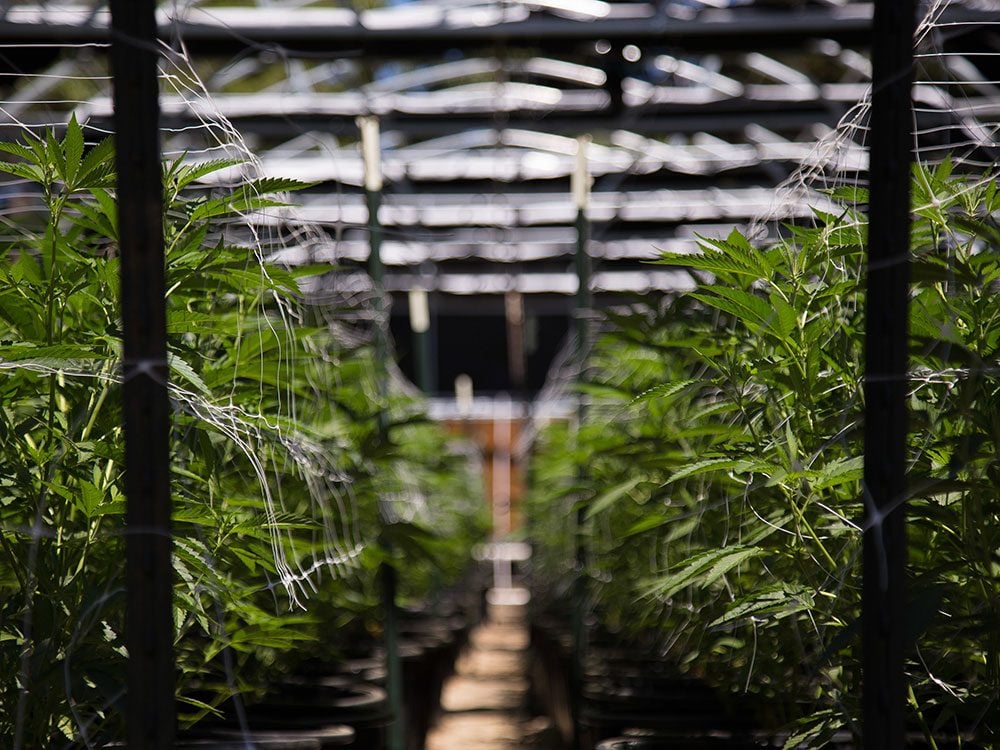6 Questions You’ve Always Wanted to Ask About Cannabis, Answered
Increase your knowledge of this soon-to-be-legal product.

With legalization just around the corner, many Canadians have questions about cannabis. Unlike brushing up on their wine knowledge, however, they may feel slightly more apprehensive starting a conversation about cannabis at a dinner party. But like so many other things surrounded by stigma, knowledge goes a long way to demystify any myths masquerading as facts.
From the differences between chemical compounds found in this multi-use plant, to methods of consumption and some of the effects cannabis has on the body, it’s important to begin the process of getting to know this much-discussed plant.
We spoke to Chris Wagner, CEO at Emerald Health Therapeutics, to help shed some light on some of the mysteries and misconceptions surrounding cannabis.
1. What’s the difference between CBD and THC?
Cannabidiol, commonly referred to as CBD, and tetrahydrocannabinol, better known as THC, are two of the naturally occurring compounds found in plants belonging to the Cannabis genus. While their molecular structures are very similar, these compounds interact with the body’s endocannabinoid system quite differently.
The key difference between the two? CBD is a non-psychoactive compound; therefore, it doesn’t produce the high associated with THC.
“Cannabis has all these different cannabinoids in it. Everybody’s heard of THC, which is the only one that actually gets people high, and we think that the other 100+ [compounds] don’t,” says Wagner.
These two unique compounds can be isolated, giving consumers the option of abstaining from most psychoactive side effects associated with cannabis, while enjoying the many benefits.
2. Can you overdose on cannabis?
Simply put, cannabis overdose in adult consumers is unlikely.
“From a human physiology point of view, there’s never been a documented case of somebody dying by taking too much cannabis. You can get very uncomfortable, but you’re not going to die,” explains Wagner.
However, consumers still need to use caution after consuming and abstain from operating a vehicle (much the same as when consuming alcohol) and should store the product properly if they live with children or pets.
3. How does cannabis consumption affect the body?
There are many factors that influence how a substance affects the body, such as an individual’s previous experience with it, their genetic makeup, how it’s consumed, and of course the product’s properties. Other factors to consider include additional medications an individual is taking and other pre-existing health conditions.
Wagner explains that Emerald’s typical customer is someone who is consuming cannabis for a specific purpose, “whether it’s they want to relax, or they want to get a good night’s sleep, or they want to reduce pain, whatever is their reason […] they depend on us to help them achieve that purpose.”
4. How/what methods can you use to consume cannabis?
While smoking and ingesting food products that have been prepared with cannabis (known as edibles) are the two most common ways to consume cannabis, there are more products being developed now that consumption is nearly legal. Topical ointments, lotions, and balms containing CBD are being used to treat physical ailments and injuries, and even CBD bath bombs and bath salts have been developed to aid in deeper relaxation without producing a high.
5. Does the strain of cannabis I choose matter?
There are two common strains of cannabis plant, called cannabis indica and cannabis sativa, which are generally associated with different physical features as well as producing different effects when consumed.
However, Wagner cautions against depending on a strain for specific results. “A strain is not specific enough to know that you’re going to get a consistent outcome. Whether you want to relax, or [you’re using it for] pain relief, strain is not good enough. You need to know the amounts of cannabinoids.”
Because cannabis is a natural product, strains are unlikely to be the same in every crop. With legalization, Wagner expects to see greater consistency in the products created, though emphasizes that consumers should choose products from a trusted and reputable company over a “craft grower” for consistent results.
6. What are some of the benefits of consuming cannabis?
Cannabis is mostly consumed recreationally, but many have consumed it to ease symptoms caused by other illnesses. Many consumers claim that it helps with loss of appetite, sleeplessness, nausea, seizures, and chronic pain from injuries or medical conditions.
Wagner adds, “I am shocked at the number of people—and quite often, they’re mostly over fifty—who come up to me and say, ‘Oh, I’ve been using CBD.’ Or, ‘I’ve been smoking cannabis for pain, and it’s super effective.’”
Talking your doctor is always the first step before beginning a new method of treatment for any symptoms you’re experiencing, and as with products like alcohol, cannabis should be consumed in moderation. Reading more information from trusted sources and talking to professionals will help you decide if consuming cannabis is right for you.



